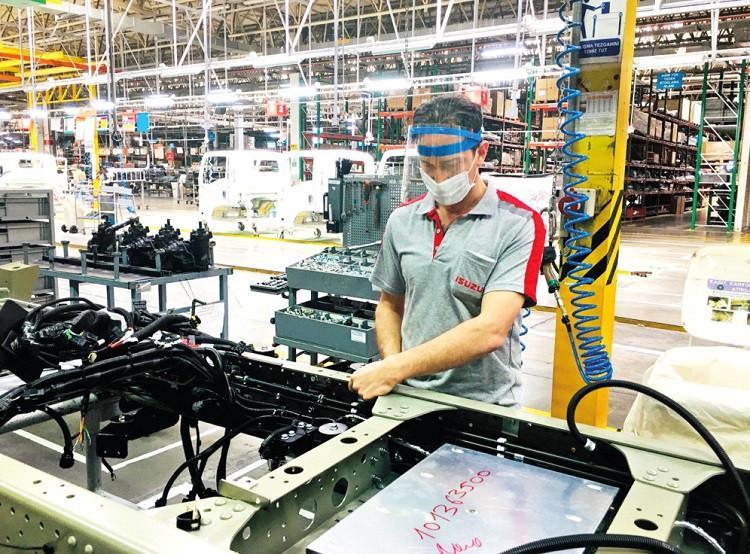
Automotive companies operating in Turkey have increased employment this year, although the coronavirus pandemic has cut production and revenues, the head of a sectoral association has said.
“The first reason behind the rise in employment is the launch of new model projects by several companies. Second, the extra employment created by firms as part of their hygiene, contact tracing and other measures planned in the early days of the pandemic,” said Haydar Yenigün, president of the Automotive Manufacturers Association (OSD).
The ratio of people infected by the novel coronavirus or in contact with an infected individual is below 2 percent in the automotive sector, he told daily Hürriyet. “This ratio is well below the average in Turkey, but in a bid to maintain sustainability in the workforce and production process, extra employment was needed.”
For these two reasons, the number of employees of the automakers has increased by approximately 4 percent, he added.
The total number of workers in the automotive sector and its supply industry was estimated at around 500,000 in 2019, according to KPMG, Turkey’s latest sectoral outlook report.
Many global automotive giants, including Fiat, Renault, Hyundai, Ford, Mercedes, Toyota, and domestic firms, such as BMC, Karsan and Temsa, produce different types of vehicles and export from Turkey to the world.
Turkey’s automotive sector had topped the country’s exports with $30.6 billion in 2019, according to the Turkish Exporters Assembly (TİM). Overall exports had increased 2 percent to reach $180.47 billion, hitting historical highs in 2019.
In the first nine months of this year, Turkey’s exports totaled $118.4 billion, down from $132.5 billion in the same period of 2019.
Almost all of the automotive factories halted or slowed down business operations in several weeks of April and May when strict COVID-19 measures and weekend lockdowns were imposed by the government. Most of the bans and restrictions were replaced with looser coronavirus measures on June 1.
In the January-September period, the total production volume of the automotive sector dropped by 19 percent. In September alone, production recovered with an increase of 4 percent.
Full recovery could come in the upcoming months, not weeks, said Yenigün, pointing to the supply chain and demand disruptions in Europe, which is Turkey’s top export and import market.
“All companies cut stock levels to the minimum. It was a proper move in crisis-stricken Europe, but the Turkish auto market did not come to a full stop as in Europe. Thus, we were not able to manufacture a sufficient amount of products to meet demand. It will take more than a few months to get to our feet again,” he said, adding that automotive parts supplied from foreign countries can arrive in about six or seven months.
Automotive factories have ramped up manufacturing after the end of August, said Yenigün.
“Most of our 14 members have been operating at maximum speed. We have arranged shifts, supplies and schedules for the upcoming period. We will post a high capacity utilization rate in the last three months of this year.”